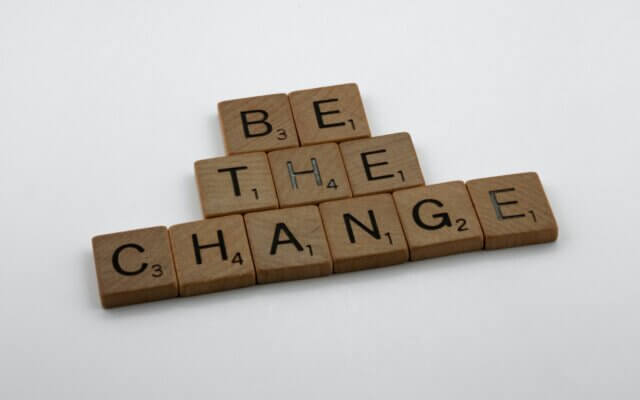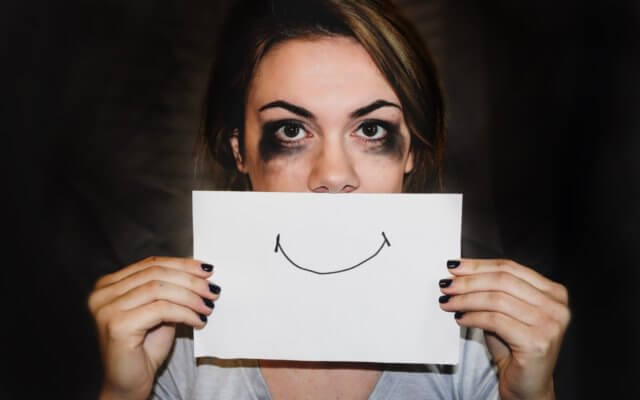Programme & action: ERASMUS+, Key Action 1: 2-part Mobility for Youth Workers
Venues and dates: Activity 1: 12-19 August 2017, Ommen, The Netherlands, Activity 2: 6-14 October 2017, Yerevan, Armenia
Participant: Aneta Fajstlová
Participating countries: Armenia, Belarus, Czech Republic, Georgia, Germany, Italy, Latvia, Macedonia, Moldova, Netherlands, Poland, Portugal and Romania
Hosting organisation: Jongeren voor uitwisseling en begrip (The Netherlands) & Armenian Progressive Youth NGO (Armenia)
Project report from the 1st part of the training course:
Our training course took place in a lovely village called Ommen. Man had a truly Dutch feeling there, surrounded by wind mills, boats, bikes, not having a chance to see even a little hill. There were 26 participants coming from Middle, South and West Europe as well as people from Armenia and Georgia in the training. Our five leaders were from Armenia, Netherlands and Latvia.
The first day in the morning we played a few getting-to-know activities while learning the names of others. What I found interesting was a game where everyone was supposed to say what makes him unique. In the afternoon a mission called Ommen Safari took place. We were sent to the city centre with a few tasks. We were supposed to bring a boiled egg and to find out who the oldest person in the village is. We also asked the locals about their opinion on refugees and what diversity means for them. The biggest adventurers also hitchhiked a boat on the river Vecht.
On the second day we defined some terms related to diversity, age and gender discrimination in several sessions. The second group from the project SpiceItUp! cooked a dinner for us and we spent the whole evening together.
During the next few days we had a look at refugee crisis and the current situation in our countries that lead into an enthusiastic debate. We also focused on sensitive language, bullying or different conflict models. One day was dedicated to guest speakers that became a huge inspiration for all of us. We heard a story of a Syrian refugee, then a talk of a man that founded a project called Human Library and a speech of a Greek girl who decided that it’s not impossible to change the world.
On Thursday we had a workshop afternoon organized by the participants themselves. We tried a bit of impro theatre, we discussed short movies about human rights and poverty and we also could participate in a photography workshop.
Every morning we started with a lesson of mindfulness and we learnt how to use it in our local organizations. Every evening we had something called LAB – Learning achievement book that helped us to see how far we are on the way to reach our goals. I really liked those sessions.
I evaluate the first phase of our training very well. I met new people from 13 countries with the same goal as I have – to manage diversity.
Aneta Fajstlová
_____________
Project report from the 2nd training course (October):
The first phase of the project was followed by activities in our countries where each of the participants implemented his own project in local organizations. The last phase of the long-term training course took place in the capital of Armenia.
The most important part was evaluation of our projects. We also participated in a couple of sessions focused on self-reflection, contributing to our society and we shared our experiences with others. We also spent time on theoretical sessions about privileged people in our society etc.
Our first day started with a City Rally in Yerevan. We discovered a couple of secluded places, talked to the locals and asked them their opinions on diversity in Armenia. One of the tasks was to visit a random Armenian family. Surprisingly we managed to do so. It was an apartment of a grandpa and a grandma. They were incredibly nice, they told us their life stories and even showed us their wedding pictures and pictures of their family. I can’t forget about the fruit they gave us.
But we spent most of the time on preparation for the highlight of our three-phase training course. That was a conference in the Hilton hotel in Yerevan where we presented our local projects. Some of them became a huge inspiration for me. For example one of the participants, Armenian psychologist, interviewed disabled people and helped them to find their employment opportunities.
The following day we went on a trip. At first we stopped at the Blue Mosque, currently the only mosque in Armenia. Then we set out to a journey to the mountains to see a monastery called Geghard enriched with various inscriptions. The valley Azat gives a scenic view. The last stop on our trip was a small village named Garni, famous for its beautiful temple from the first century. The study visit was followed by a traditional Armenian dinner in a local family. We also made Armenian bread (lavash) and sweet sudjukh which are walnuts glazed in syrup.
I have to say that having a good knowledge of Russian is a huge advantage in Armenia. They don’t really speak English. What I found interesting were little fountains with drinking water spread all over the city. On the other hand I’m pretty sure that I won’t miss the insane traffic and the ubiquitous sound of car horns. It’s also impossible to leave Armenia without learning the ability to bargain. At the stores, in a taxi, everywhere.
This project was an excellent even though quite demanding experience. I’m really happy that I met all the people, we are still in touch, planning a new project. Thank you for this opportunity, it was unforgettable.
Aneta Fastlová
———-
Official report:
Managing Diversity towards More Inclusive Societies
Have you ever had that feeling when you are in a crowd of like-mined people who have similar lifestyle and background? It‘s cool to be understood from half a word and easily fit in, isn‘t it? Many of young people have never felt that way.
Our education system, our family, the media and politics have developed certain patterns of our behaviour: fear of uncertainty, being judgemental, rejecting unknown and excluding differences. These are patterns that are often strongly connected to our societal habits and, therefore, can be changed. That‘s why the project “Managing Diversity” was born.
“Managing Diversity” project was born out of a concern that many young people in Europe have lack of opportunities and spaces to get involved and to express themselves. Being different from mainstream societies, many are being excluded and marginalized.
This is why 13 non-profit organizations have developed “Managing Diversity” – a long term project working with youth workers, youth trainers and educators, trying to develop their diversity management skills and support them in learning how to implement a culture of diversity in their working environments.
The project targeted specifically those youth workers and educators who are eager to professionally work against structural discrimination and under-representation of marginalized groups. 26 youth workers from 13 countries joined this multi-layer project in August 2017. The group has undergone a series of trainings and capacity building workshops in the Netherlands which were followed by implementation of small local projects back in home countries of the participants.
For about 2 month between August and October, participants have developed and executed 19 local projects reaching about 500 young people in 13 countries ranging from East to West of Europe. The local projects have worked and empowered young refugees, LGBTQI people, Roma youth, youth with disabilities and many other vulnerable and marginalized youth.
Through different types of projects our participants have worked on very sensitive topics. The activities ranged from an improvisational theatre involving Roma youth in Romania and Human Library in Macedonia to career orientation courses for youth with disabilities in Armenia; from a surfing workshop for people with disabilities and a multicultural football tournament in Portugal to a Forum Theatre with refugees in Germany. Many of the projects have targeted the most vulnerable youth, such as a movie projects promoting LGBTQI rights in Moldova or speaking up about domestic violence against women in Armenia.
All the projects were exceptional having in mind that they were implemented with 0 funding, purely organized through the resources of participants, networks of partner organizations and in kind contribution and support provided by local stakeholders in each respective country. The projects took place in home countries of the participants: Armenia, Belarus, Czech Republic, Georgia, Germany, Italy, Latvia, Macedonia, Moldova, the Netherlands, Poland, Portugal and Romania. All the projects were implemented through diversity glasses and tackled issues of minority groups living in participating countries.
Following the successful implementation of small projects, the project results were evaluated and presented to public in Yerevan, Armenia in October, 2017. The public event was attended by young people, representatives of NGO’s and international organizations, media and partners.
According to the Project Coordinator Ms. Nelly Paytyan, “Managing Diversity” was a good tool against widespread stereotypes in our societies. She thinks that “promoting diversity matters and will matter until young people in our societies face discrimination, ignorance and life burdens based on their nationality, ethnic, cultural and religious background, social status, as well as their gender identity and sexual orientation”.
“Managing Diversity” was organized by Armenian Progressive Youth NGO (Armenia) and Jongeren voor Uitwisseling en Begrip (The Netherlands). The project was granted by the Dutch National Agency under the Erasmus Programme of the European Union.


